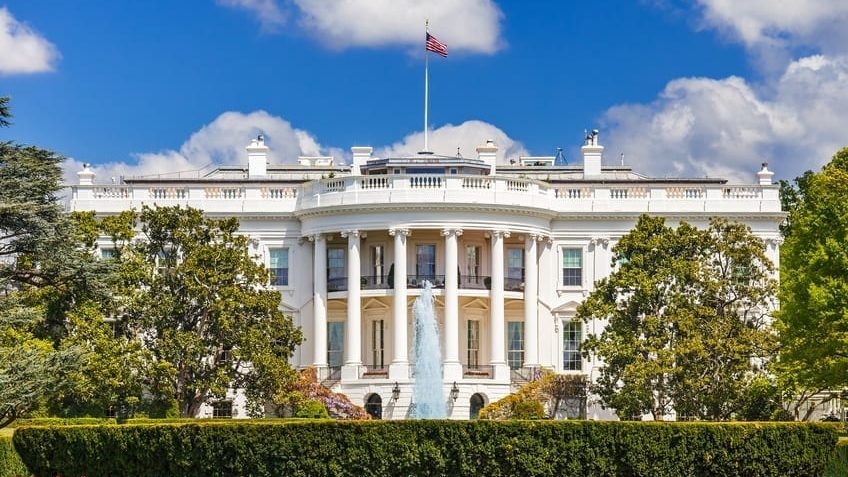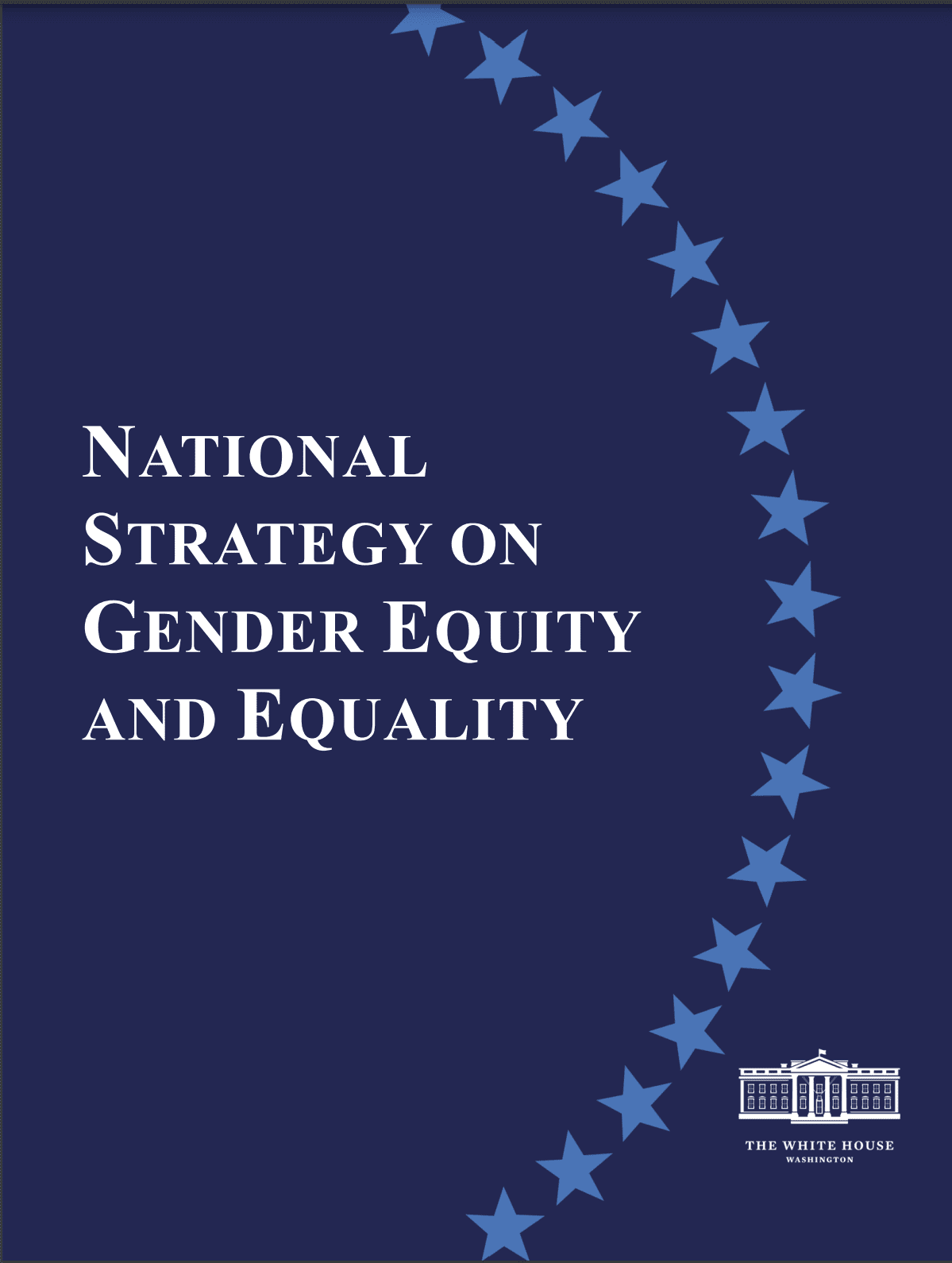White House’s National Strategy on Gender Equity and Equality to Help Guide Domestic and Foreign Policy
Government-wide strategy aims to “do more than just rebuild to a status quo that wasn’t working for women and girls.”

Last month, the Biden-Harris Administration issued the first-ever U.S. government National Strategy on Gender Equity and Equality (“the National Strategy”). This groundbreaking strategy, developed by the White House Gender Policy Council, will serve as a roadmap for a government-wide effort to advance gender equity and equality and will guide the Biden-Harris Administration’s domestic and foreign policy.
In a letter on the National Strategy, President Biden and Vice President Harris reaffirmed the Administration’s commitment to address the impacts of intersectional discrimination and “do more than just rebuild to a status quo that wasn’t working for women and girls.”
Read the full document here.
The National Strategy identifies 10 interconnected priorities to advance gender equity and equality, including economic security; gender-based violence; health; education; justice and immigration; human rights and equality under the law; security and humanitarian relief; climate change; science and technology; and democracy, participation, and leadership.
Expanding Access to Sexual and Reproductive Health Care Is Central to Gender Equity and Equality
The National Strategy makes protecting and expanding access to sexual and reproductive health care, including access to abortion care, both domestically and globally, a strategic priority. Such access is essential to advancing gender equity and equality, and the National Strategy makes clear that barriers to health care, including reproductive health care, “undermine women’s ability to take care of their families, advance in the workplace, and lead in all sectors.”
Sexual and reproductive health, rights, and justice are under grave attack across the United States and abroad. The National Strategy stresses the gravity of the situation and outlines actions to effectively respond. It specifically focuses on the crisis in access to abortion care across the United States and emphasizes the Administration’s priority to protect the constitutional rights recognized in Roe v. Wade.
In the Strategy, the Administration specifically commits to:
- Restoring and expanding the Title X program to strengthen access to the full range of family planning services,
- Supporting the repeal of the Hyde Amendment, and
- Improving people’s ability to select their reproductive health care provider of choice regardless of the health care program.
The Strategy also prioritizes tackling disparities in maternal health care, responding to the impact of climate change on maternal health, and addressing the maternal health crisis in the United States, which disproportionately impacts Black and Indigenous pregnant and birthing people. Specifically, the Strategy mentions advancing the expansion of Medicaid postpartum coverage to a full year, investing in rural maternal health efforts, and diversifying the perinatal workforce.
Strategy’s Intersectional Approach Seeks to Address Inequities, Bias, and Systemic Racism in Health Care
In adopting an intersectional approach to advancing gender equity and equality, the National Strategy seeks to address persistent inequities, bias, and systemic racism in health care and improve health outcomes domestically and globally. The Strategy affirms that “[h]ealth care is a right—not a privilege” and centers the need to break down the discriminatory barriers to access to health care disproportionately faced by people of color, LGBTQI+ people, people with disabilities, people living in rural areas, and people working to make ends meet.
Gender Policy Council to Lead Implementation
The Gender Policy Council will now lead the government-wide implementation of the National Strategy by working closely with each federal agency to ensure a focus on gender equity and equality in their policy and program development. The Gender Policy Council was established by the Biden-Harris administration in March 2021, and plays a key role in advancing domestic and foreign policy development.
Read more:


